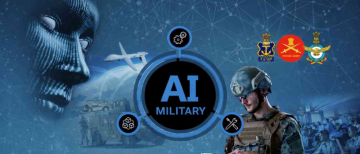We're living in an age of instant information, which means that news spreads faster than ever before. And sometimes it spreads without being verified. Whether it's a scientific breakthrough, a celebrity scandal, or a breaking headline about aliens visiting Earth, it's easier than ever to fall for misinformation.
Platforms like UFO Connect, which focus on reports related to unexplained aerial phenomena, have made it even more important for people to evaluate claims with a critical eye. While curiosity is natural and healthy, scepticism is essential, especially when the topic involves science or the unknown. Let's take a look at 5 reasons why verifying news stories before believing them is more important than ever before.

- Misinformation can spread quickly and widely. Thanks to social media and online platforms, a story, whether it's true or not, can reach millions of people within minutes. The more surprising or sensational the story, the faster it travels if someone posts a headline like NASA confirms Alien Life. It's bound to go viral even if it's not based on verified science. Platforms like UFO Connect, however, gather reports and data from the public, and they serve an important role in exploration.Without proper fact checking, stories convey conspiracy theories or distract from genuine scientific investigation.
- False information can undermine real science. When unverified stories spread as fact, they can erode public trust in real scientific research. For instance, if a widely circulated but debunked claim about faster than light travel or alien contact makes headlines, people may begin to question legitimate findings from places like NASA or the European Space Agency.Scientific progress relies on peer reviewed data, rigorous testing, and transparent methodology. Believing or sharing unverified claims blurs the line between evidence based discovery and entertainment.
- Critical thinking is a vital skill in the digital age. Learning to verify news stories helps to sharpen your critical thinking skills. Science is based on asking questions, testing hypotheses, and demanding evidence. This is the same process you can apply to the information that you encounter every day.Instead of accepting a headline as fact, ask who the source is. Ask if the information is backed up. Ask if it can be confirmed elsewhere. Whether you're browsing a science blog or applying scientific thinking to something else, you need to be able to do this to help you to separate fact from fiction.
- Panic prevention. Unverified news can sometimes lead to unnecessary fear or confusion. Think about how quickly recent stories of a rapture spread. Whether it's about a new disease, an environmental disaster or an unidentified flying object sighting, if people believe false reports without checking the facts, they may make irrational decisions. When it came to the 2025 version of the Rapture, people were selling their cars. That's not a normal response.
- The truth matters. Science is about discovery, learning, and understanding, and it's about understanding the world through fact. That's why truth and evidence must always take priority. By verifying news before accepting it, you're contributing to a culture that values honesty, knowledge, and progress.
With inputs from agencies
Image Source: Multiple agencies
© Copyright 2025. All Rights Reserved. Powered by Vygr Media




















